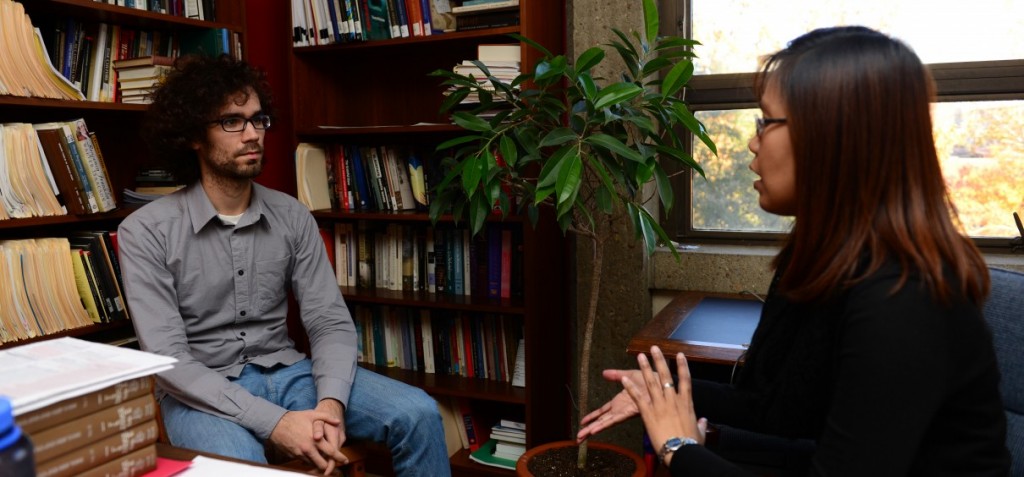English as a Second Language

In Italy, an Italian airplane pilot on an international flight talks to the air traffic controller in Rome in English. In Shanghai, the German and Chinese managers of a Volkswagen plant discuss production plans in English. Worldwide, more than 80 percent of the data stored on computers is in English.
The English language has grown well beyond the borders of monolingual English-speaking countries. Users of English as a second or additional language currently far outnumber those who speak English as their first or primary language. To accommodate both those who study English as a second language, such as matriculated international and immigrant students at UT or those who wish to teach English as a second/foreign language, the Department of English offers classes at both the undergraduate and graduate levels.
For questions about the ESL Writing Program, please send an email to: esl@utk.edu
Teaching ESL
Teaching English has become an enormous global industry. Many legitimate work sites now require a master’s degree in ESL, a certificate from a reputable institution, or course work in this or related fields such as applied linguistics or language education. The courses offered by the Department of English can serve to enhance a student’s chance of securing an appropriate position teaching English abroad, or of being admitted to a graduate program in Applied Linguistics or ESL.
While our department does not offer a degree in teaching ESL, we do offer several courses to help prepare students interested in this field, which also fulfill some degree requirements in the College of Education’s program in Foreign Language or ESL teacher training. Most of these 400-level courses are offered on a two-year rotation. For more information, view our Undergraduate Course Descriptions.
English 474: Teaching English as a Second Language I
Introduces issues in teaching ESL such as the political dimensions of the enterprise; theory and research into how adults learn second languages; the effect of variable attributes of learners (for example, age, motivation, individual cognitive style) on language learning; and varieties of methodologies in teaching ESL. It assumes no background in ESL, but does assume experience with language learning.
English 476: Second Language Acquisition
Explores, in detail, research on and theories of how languages are learned, beginning with infants learning their first languages, and moving to adults learning second languages.
English 477: Pedagogical Grammar for ESL Teachers
Focuses on features of the structure of English that create problems for English learners. It is intended to help (prospective and current) ESL teachers understand English structure well enough to be able to answer learners’ questions with accuracy and confidence.
English 575: Issues in L2 Rhetoric and Composition
Examines rhetorical, political, linguistic, and pedagogical issues in teaching writing at English language institutes or at the college or university level (particularly freshman composition) to learners whose first or strongest language is not English.
Related Courses
The English Department and the Interdisciplinary Program in Linguistics also offer several other courses that might be helpful for those interested in teaching ESL. These courses include English 371 (Foundations of the English Language), 372 (The Structure of Modern English), 471 (Sociolinguistics), and Linguistics 200 (Language, Linguistics, and Society).
Additional Information
For additional information about teaching English as a Second Language, please contact Tanita Saenkhum

Tanita Saenkhum
Associate Professor, Director of ESL